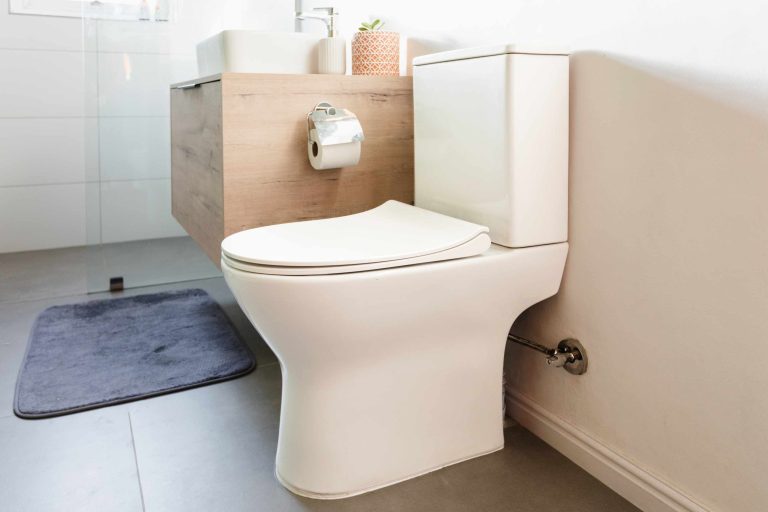How to Install a Corner Shower Caddy [A Complete DIY Guide]
Are you tired of shower items cluttering your bathing space? Let’s transform your shower corner into an organized oasis! I’ll guide you through everything you need to know about installing a corner shower caddy, making it a breeze even if you’re not particularly handy.
Table of Contents
Understanding Corner Shower Caddies
Before we dive into the installation process, let’s get familiar with what we’re working with. A corner shower caddy is more than just a storage solution – it’s a game-changer for your daily shower routine.
Types of Corner Shower Caddies
When it comes to corner shower caddies, you’ve got several options to choose from:
- Tension rod caddies
- Suction cup models
- Adhesive mount options
- Drill-required permanent installations
Each type has its unique advantages, and I’ll help you understand which might work best for your situation.
Benefits of Corner Shower Caddies
Corner shower caddies offer numerous advantages:
- Maximize unused corner space
- Keep shower essentials organized
- Prevent soap scum buildup on tub edges
- Reduce clutter and safety hazards
- Add aesthetic appeal to your shower
Preparation Before Installation
Success lies in proper preparation. Let’s get everything ready before we start the installation process.
Required Tools and Materials
Depending on your caddy type, you might need:
- Level
- Measuring tape
- Pencil
- Cleaning supplies
- Screwdriver
- Drill (for permanent installations)
- Silicone sealant
- Rubber mallet
Safety Considerations
Before we begin, let’s talk safety:
- Ensure proper ventilation
- Wear safety glasses when drilling
- Use non-slip mats during installation
- Keep electrical tools away from water
- Check for pipes before drilling
Installation Methods
Now, let’s explore each installation method in detail. I’ll walk you through every option so you can choose what works best for your shower.
Tension Rod Installation
Tension rod caddies are popular for their non-permanent nature and easy setup.
Step-by-Step Tension Rod Process
- Measure your shower corner height
- Clean the installation area thoroughly
- Assemble the tension rod according to manufacturer instructions
- Position the caddy in the corner
- Extend the rod until secure
- Test stability before adding items
Suction Cup Installation
Suction cup models offer flexibility and easy repositioning.
Maximizing Suction Cup Adherence
For the best results:
- Clean surfaces with alcohol
- Slightly moisten suction cups
- Press firmly against the wall
- Apply pressure in a circular motion
- Wait 24 hours before loading items
Adhesive Mount Installation
Adhesive mounts provide a semi-permanent solution without drilling.
Surface Preparation Tips
Follow these steps for optimal adhesion:
- Mark installation spots
- Clean with rubbing alcohol
- Let surface dry completely
- Remove adhesive backing carefully
- Apply pressure for 30 seconds
- Allow 24 hours curing time
Drill-Required Installation
For the most secure option, consider a permanent installation.
Proper Drilling Techniques
When drilling:
- Mark drill spots with a level
- Use appropriate drill bits for your surface
- Start with pilot holes
- Insert wall anchors
- Secure mounting brackets
- Attach caddy carefully
Maintenance and Care
To keep your caddy functioning perfectly:
- Clean weekly with non-abrasive cleaners
- Check stability monthly
- Tighten any loose components
- Remove excess moisture
- Redistribute weight evenly
- Replace suction cups as needed
Troubleshooting Common Issues
Common problems and solutions:
- Sliding caddy: Check tension/suction
- Rust spots: Apply clear coating
- Loose components: Tighten or replace
- Wall damage: Use proper anchors
- Tilting issues: Redistribute weight
Frequently Asked Questions
- How much weight can a corner shower caddy hold?
Most tension rod and permanent mount caddies can hold 20-30 pounds, while suction cup models typically support 5-10 pounds.
- Can I install a corner shower caddy on natural stone tiles?
Yes, but avoid drilling. Opt for tension rod or high-quality suction cup models to prevent damage to expensive stone surfaces.
- How often should I replace suction cups?
Replace suction cups every 6-12 months or when you notice decreased adhesion, regardless of visible wear.
- Will a tension rod caddy damage my shower walls?
When properly installed, tension rod caddies shouldn’t damage walls. Use rubber ends and avoid over-tightening.
- Can I install a corner shower caddy in a rental property?
Yes! Choose tension rod or suction cup models that don’t require permanent modification to the shower walls.
Conclusion
Installing a corner shower caddy doesn’t have to be complicated. By following this guide, you can create an organized, efficient shower space that makes your daily routine more enjoyable. Remember to choose the installation method that best suits your needs and skill level, and don’t rush the process – proper installation ensures long-lasting results.


![6 Best Shower Caddies for Clawfoot Tubs [In 2025]](https://bathroomexplorer.com/wp-content/uploads/2024/10/Best-Shower-Caddies-for-Clawfoot-Tubs.jpg)

![What Is The Best Waterproof Shower Benches [In 2025]](https://bathroomexplorer.com/wp-content/uploads/2024/05/Best-Waterproof-Shower-Benches.jpg)
